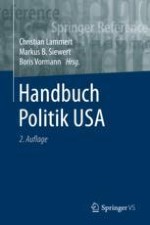2020 | OriginalPaper | Buchkapitel
Die USA und Asien
Weltordnung à la Trump
verfasst von : Markus Liegl, Iris Wurm
Erschienen in: Handbuch Politik USA
Verlag: Springer Fachmedien Wiesbaden
Aktivieren Sie unsere intelligente Suche, um passende Fachinhalte oder Patente zu finden.
Wählen Sie Textabschnitte aus um mit Künstlicher Intelligenz passenden Patente zu finden. powered by
Markieren Sie Textabschnitte, um KI-gestützt weitere passende Inhalte zu finden. powered by
